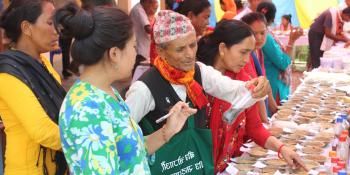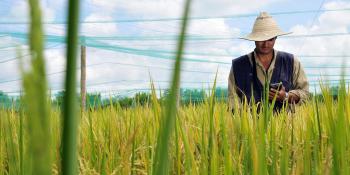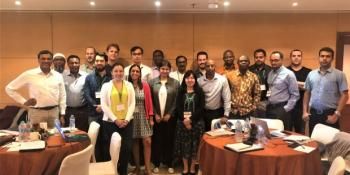Climate information for decision support in Sri Lanka’s Mahaweli river basin

by Lareef Zubair and Zeenas Yahiya
The Mahaweli River originates in the south-western hill slopes (the wettest region of Sri Lanka) and vends its way to the dry Northern plains. The Mahaweli’s natural role in irrigation has been augmented with reservoirs, trans-basin canals, and distribution systems developed over three millennia. In the last three decades, 7 large reservoirs and 5 hydropower plants were constructed leading to enhanced irrigation and hydro-energy production but with risks to wildlife, ecosystem and human well-being and health.
The Mahaweli (River Basin) Authority decides on water allocation among sectors, regions and users at weekly to seasonal timescales and on policy at the longer term. These decisions are predicated on climate.
In 2000, the Mahaweli Authority and the International Research Institute for Climate and Society initiated a program to explore the viability of the practical use of climate information in a typical resource constrained tropical setting. Initially, the focus was on seasonal predictions but it became clear that seasonal predictions needed to be contextualized in terms of climatology and monitored information. Predictions were needed from a week to decade ahead and from village to sub-catchment scales. Over the next decade, climate information for decision support was developed for mitigating human-elephant conflict, managing food and plantation crops, managing hydropower production, managing the risk of malaria and disaster risk.
Our work has shown that
- Climate information that caters to the needs of resource managers can be generated.
- Climate risk for agriculture, water supply, energy, environmental needs, public health and disaster management can be managed better with climate information and is sometimes best addressed in tandem.
- Advancing in-situ research and technological capacity and training and educational programs are essential for robust adoption of technical advance.
Since 2006, the Foundation for Environment, Climate and Technology (FECT) has been distributing a weekly hydro-climatic advisory for resource managers and researchers along with other climate services.
More information
Read more about Climate Change, Agriculture and Food Security work in South Asia.
This blog story was written by Lareef Zubair and Zeenas Yahiya, Foundation for Environment, Climate and Technology, Sri Lanka.


